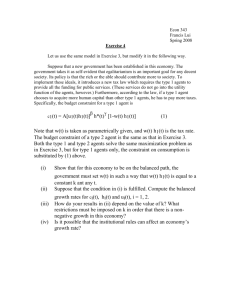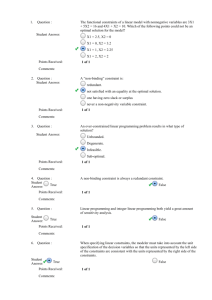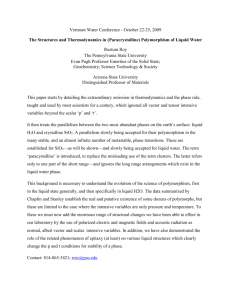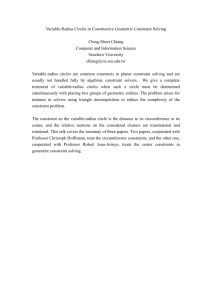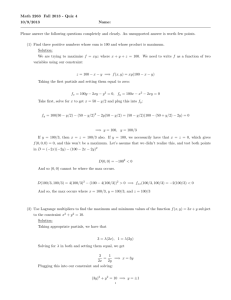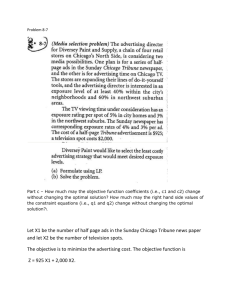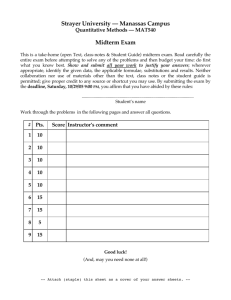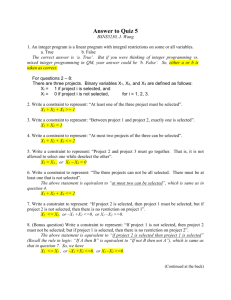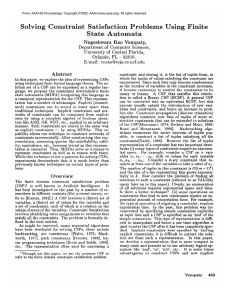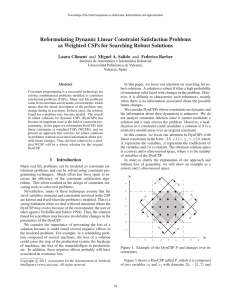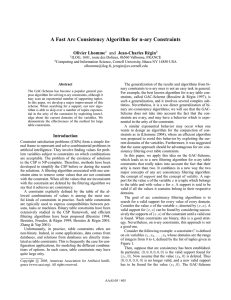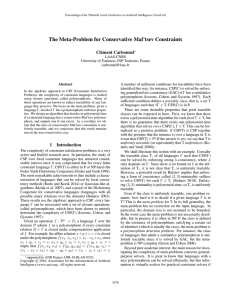CSPTheory
advertisement
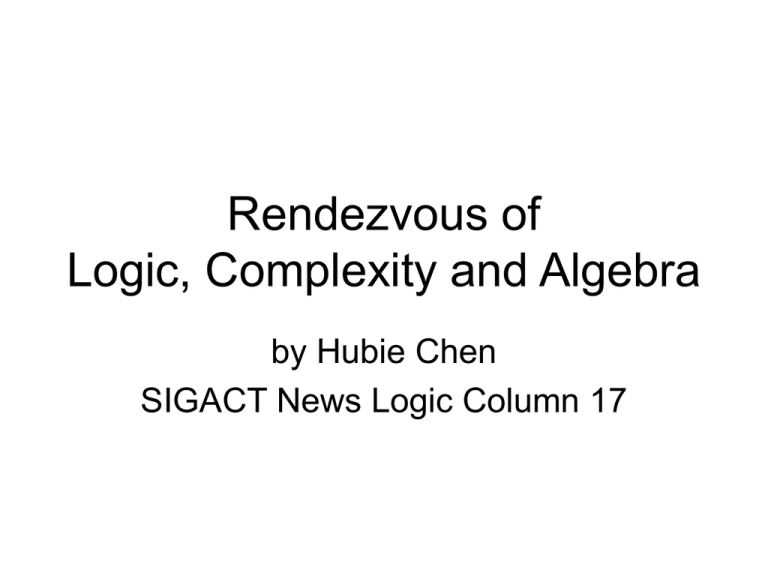
Rendezvous of
Logic, Complexity and Algebra
by Hubie Chen
SIGACT News Logic Column 17
Definitions (1)
• A relation over domain D is a subset of Dk
for some k ≥1. k is said to be the rank of
the relation. A constraint language over D
is a set of relations over D. A constraint
language is finite if it contains finitely many
relations and is boolean if it is over
D={0,1}.
Definitions (2)
• A constraint over a constraint language Γ
is an expression of the form R(v1, … ,vk)
where R is a relation of rank k contained in
Γ, and the vi are variables. A constraint is
satisfied by a mapping f defined on the vi if
(f(v1), … ,f(vk)) in R.
Definitions (3)
• Let Γ be a finite constraint language over
domain D. The problem CSP(Γ) is to
decide, given a finite set of variables and a
finite set of constraints over Γ with
variables from V, whether or not there
exists a solution (or satisfying
assignment), a mapping f:V->D satisfying
all constraints.
+ = or
! = not
•
•
•
•
•
•
•
Example 3-SAT
R0,3(x,y,z) = x+y+z ={0,1}3\{0,0,0}
R1,3(x,y,z) = !x+y+z ={0,1}3\{1,0,0}
R2,3(x,y,z) = !x+!y+z ={0,1}3\{1,1,0}
R3,3(x,y,z) = !x+!y+!z ={0,1}3\{1,1,1}
Γ3 = {R0,3, R1,3, R2,3, R3,3 }
3-SAT: !u+v+!t !s+t+v s+t+!v v+u+s
CSP(Γ3): R2,3(u,t,s) R1,3(s,t,v) R1,3(v,s,t)
R0,3(v,u,s)
• Any CSP(Γ3) instance can be formulated as a 3SAT and vice-versa.
Schaefer’s Theorem
algebraic formulation
• Let Γ be a finite Boolean constraint language.
The problem CSP(Γ) is polynomial-time tractable
if Γ has one of the following six operations as a
polymorphism:
–
–
–
–
–
–
the constant operation 0
the constant operation 1
the Boolean AND operation
the Boolean OR operation
the operation majority
the operation minority
• Otherwise CSP(Γ) is NP-complete
Polymorphism Definition (1)
• An operation f: Dm -> D is a polymorphism
of a constraint language Γ if it is a
polymorphism of all relations R in Γ.
Polymorphism Definition (2)
• An operation f: Dm -> D is a polymorphism
of a relation R ≤ Dk if for any choice of m
tuples (t11, … ,t1k), … ,f(tm1, … ,tmk) from R,
it holds that the tuple obtained from these
m tuples by applying f coordinate-wise,
(f(t11 , …, tm1), … ,f(t1k, …, tmk)) is in R.
Examples
• The relation R0,3(x,y,z) = x+y+z
={0,1}3\{0,0,0} has the Boolean OR
operation as a polymorphism. Suppose
that (t11, t12, t13),(t21, t22, t23) are two tuples
from R0,3.There is some coordinate of the
first tuple equal to 1 and thus the tuple (t11
or t21, t12 or t22, t13 or t23) is also in R0,3.
